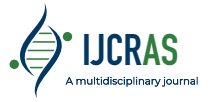| Title: QUINCE (CYDONIA OBLONGA) PEEL AS A NATURAL BIOSORBENT FOR CHROMIUM (VI) REMOVAL IN BATCH SYSTEMS |
| Authors: Leonor Zapién-Serrano, Adriana Vázquez-Guerrero, Ruth Alfaro-Cuevas-Villanueva and Raúl Cortés-Martínez |
| Affiliation: MSc Environmental Engineering Program, Universidad Michoacana de San Nicolás de Hidalgo, CU, CP 58030 Morelia, Mexico. Chemical Engineering Faculty, Chemical Engineering Faculty, Juarez Autonomous University of Tabasco, Campus Cunduacan, Tabasco, México Earth Sciences Research Institute, Universidad Michoacana de San Nicolás de Hidalgo, CU, CP 58030, Morelia, Mexico |
| Abstract: This study investigates the potential of quince (Cydonia oblonga) peels as a natural biosorbent for removing hexavalent chromium (Cr(VI)), a highly toxic heavy metal, from aqueous solutions. Experiments were conducted in batch systems to evaluate both the reduction of Cr(VI) to Cr(III) and its biosorption onto the quince peels. Results demonstrated that quince peels effectively facilitated both processes, with reduction efficiency maximized at 40°C due to increased molecular kinetic energy. Lower initial Cr(VI) concentrations resulted in higher reduction and removal efficiencies, attributed to greater availability of active binding sites on the biosorbent. Acidic conditions (pH 2) significantly enhanced both reduction and biosorption, likely due to protonation of the active sites on the peels, achieving a maximum biosorption capacity of 1.5 mg/g. The study further explored the influence of biosorbent dosage, revealing high reduction efficiency across various doses, with slightly higher efficiency observed at low to intermediate doses. These findings highlight the potential of quince peels, an abundant agricultural waste product, as a cost-effective and eco-friendly alternative for Cr(VI) remediation, offering dual functionality in both reducing and removing this hazardous pollutant from water. |
| Keywords: Biosorption, Quince, Chromium, Reduction |
| DOI: https://doi.org/10.61646/IJCRAS.vol.3.issue6.102 |
| Date of Publication: 31-12-2024 |
| PDF Download |
| Download Certificate |
| Published Volume and Issue: Volume 3 Issue 6 Nov-Dec 2024 |
International Journal of Current Research and Applied Studies
An open access multidisciplinary journal, ISSN 2583-6781
